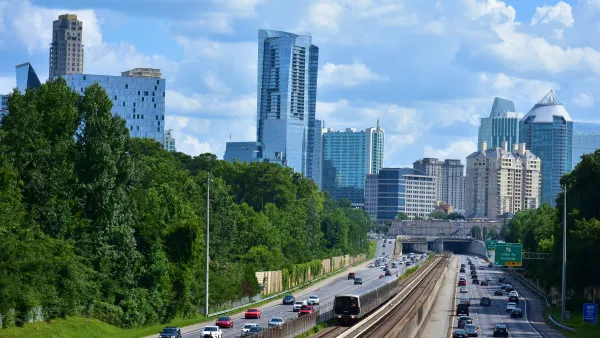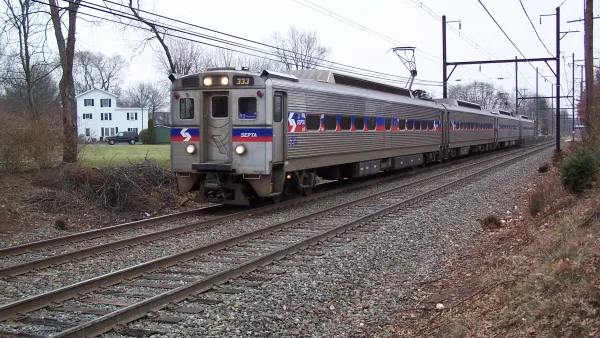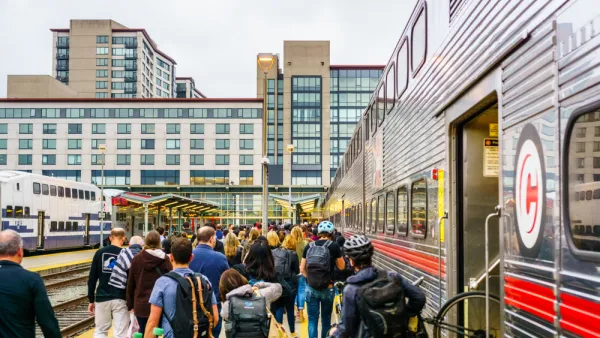Recent studies seem to indicate that public transportation is habit-forming, and, as Brad Plumer notes, that may not be a good thing.
Plumer points to two recent studies, one in New York and one in Philadelphia, that show the rise in transit use that accompany spikes in gas prices remain in place even as gas prices fall back down.
"This research is all discussed in a new policy brief
(pdf) by the American Public Transportation Association, which notes
that the United States appears to have entered a new era of oil
volatility. (They're not alone
in thinking so!) And that means that demand for public transportation
is likely to keep surging. If gas prices spike, more people will try to
ride the bus or train to work. If gas prices then settle down again,
many of those people will stick with transit."
The problem, pointed out by Plumer, is that America's transit agencies are ill equipped to handle increased demands. In fact, 71 percent of metropolitan transit agencies have had to cut services in the past year or are currently considering it.
Of course the catch-22 in this equation is the federal government's reliance on gasoline taxes for transit funding. "Transit is funded through a
dedicated fraction of the gas tax. And that can create havoc: Whenver [sic]
oil volatility pushes people away from driving and toward transit, that
means there's less gas-tax revenue available. We've seen this during the
current recession - driving has plunged, which means gas-tax
collections have fallen, which means Congress is bickering about whether to cut money for transit systems."
FULL STORY: Public transportation is habit-forming — and that’s a problem!

National Parks Layoffs Will Cause Communities to Lose Billions
Thousands of essential park workers were laid off this week, just before the busy spring break season.

Retro-silient?: America’s First “Eco-burb,” The Woodlands Turns 50
A master-planned community north of Houston offers lessons on green infrastructure and resilient design, but falls short of its founder’s lofty affordability and walkability goals.

Delivering for America Plan Will Downgrade Mail Service in at Least 49.5 Percent of Zip Codes
Republican and Democrat lawmakers criticize the plan for its disproportionate negative impact on rural communities.

Test News Post 1
This is a summary

Test News Headline 46
Test for the image on the front page.

Balancing Bombs and Butterflies: How the National Guard Protects a Rare Species
The National Guard at Fort Indiantown Gap uses GIS technology and land management strategies to balance military training with conservation efforts, ensuring the survival of the rare eastern regal fritillary butterfly.
Urban Design for Planners 1: Software Tools
This six-course series explores essential urban design concepts using open source software and equips planners with the tools they need to participate fully in the urban design process.
Planning for Universal Design
Learn the tools for implementing Universal Design in planning regulations.
EMC Planning Group, Inc.
Planetizen
Planetizen
Mpact (formerly Rail~Volution)
Great Falls Development Authority, Inc.
HUDs Office of Policy Development and Research
NYU Wagner Graduate School of Public Service





























